Little known fact: When Beyonce sang, “I’ll have another you by tomorrow, so don’t you ever for a second get to thinking you’re irreplaceable,” she wasn’t talking about Lionel Messi or Virgil van Dijk or anyone else on this list for that matter.
With what promises to be a busy summer transfer window, we decided to take a look at the “Mr. Indispensable” at 12 of the best (or biggest) clubs in the world. Who are the guys that make the biggest impact for their sides when they’re on the field?
Barcelona: Lionel Messi
He leads the team in chances created, shots, assists, goals, successful through balls and dribbles completed. None of the runners-up are particularly close. Also: He’s Lionel Messi. Next.
Manchester City: Fernandinho
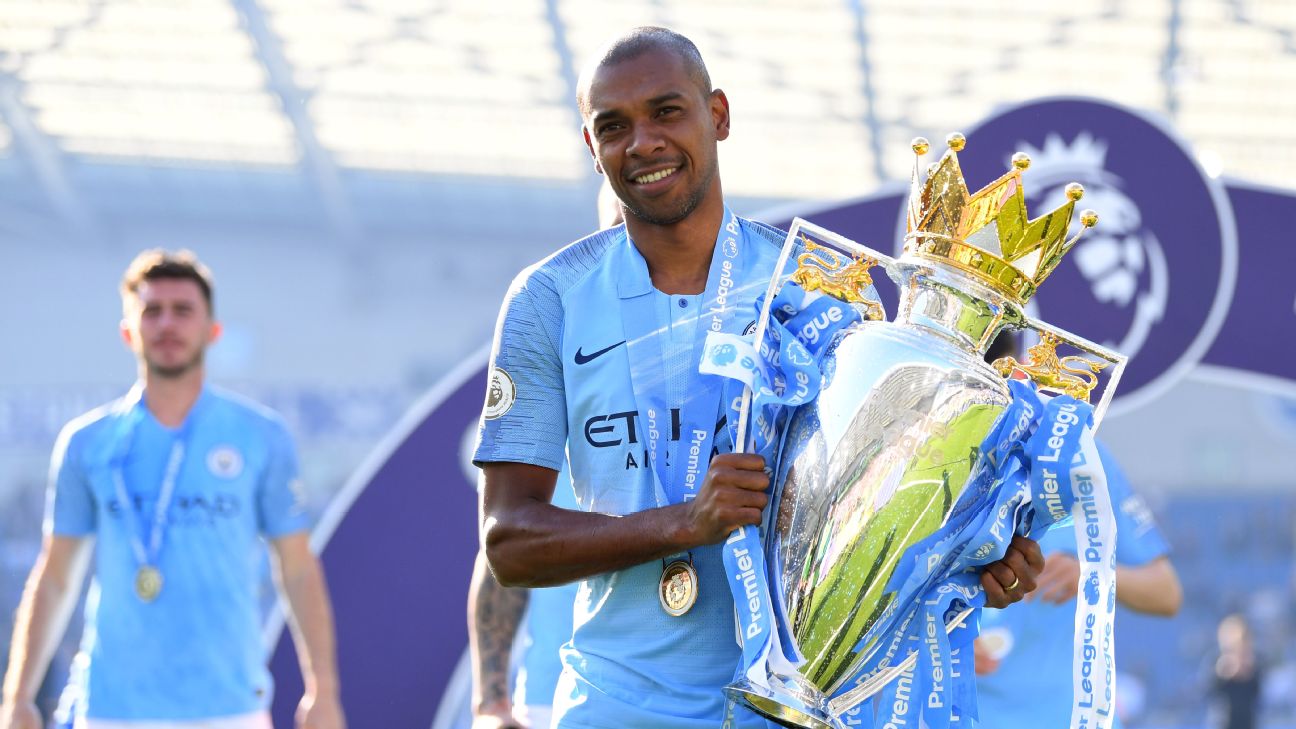
The year is 2550. The scarcity of water has made it three times as valuable as gold. Borders have disappeared. Facebook, Google, Apple, Amazon and Microsoft are the only remaining global institutions, and pundits are still wondering how Manchester City will cope with Fernandinho‘s eventual retirement.
Since turning 30, he’s played an average of 2,687 minutes — of a possible 3,420 — over the past four Premier League seasons. He is both City’s anchor and their ignition; among regular starters this past season, he led the team in tackles and interceptions and led all non-defenders in forward passes per 90 minutes. His ability to win the ball and then get it to Man City’s endless supply of playmakers all by himself is what allows Pep Guardiola to cram extra attackers into the midfielder under the guise of calling them “free eights.”
The Brazilian struggled with injuries this year and played his fewest minutes in the league since 2014-15, but he still started 28 games and two of City’s four league losses came without him on the field. He just turned 34.
This can’t last forever … right?
Liverpool: Virgil van Dijk
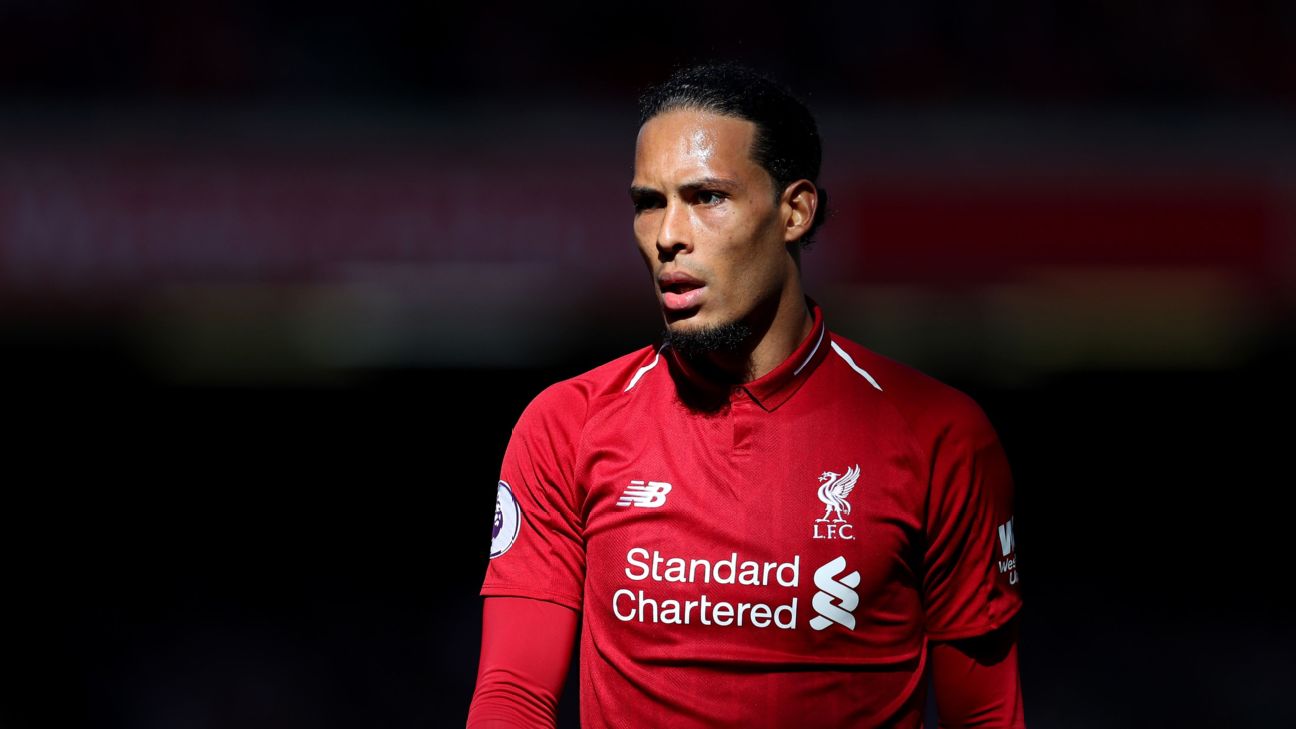
Paolo Maldini, the legendary Italian defender (and failed amateur tennis player), once said “if I have to make a tackle, then I have already made a mistake.” If Maldini’s cool-under-pressure has a modern, more athletic heir, it would be Liverpool’s Dutch center-back.
In 49 games this year in the Premier and Champions Leagues, he’s attempted just 49 tackles — without losing a single one. What that means is no attacker — not Neymar, Kylian Mbappe, Eden Hazard or Lionel Messi — has successfully dribbled by him this year. But perhaps this is even more representative of Van Dijk’s team-wide effect in transforming Liverpool’s defense from a source of chaos and anxiety to a source of strength.
In Jurgen Klopp’s first two seasons with the club, they committed 21 errors that led directly to goals. Over the past two years: just eight. In Liverpool’s last full Premier League season without VVD, they conceded 42 goals. In their first full year with him, that number dropped to 22.
Manchester United: Paul Pogba
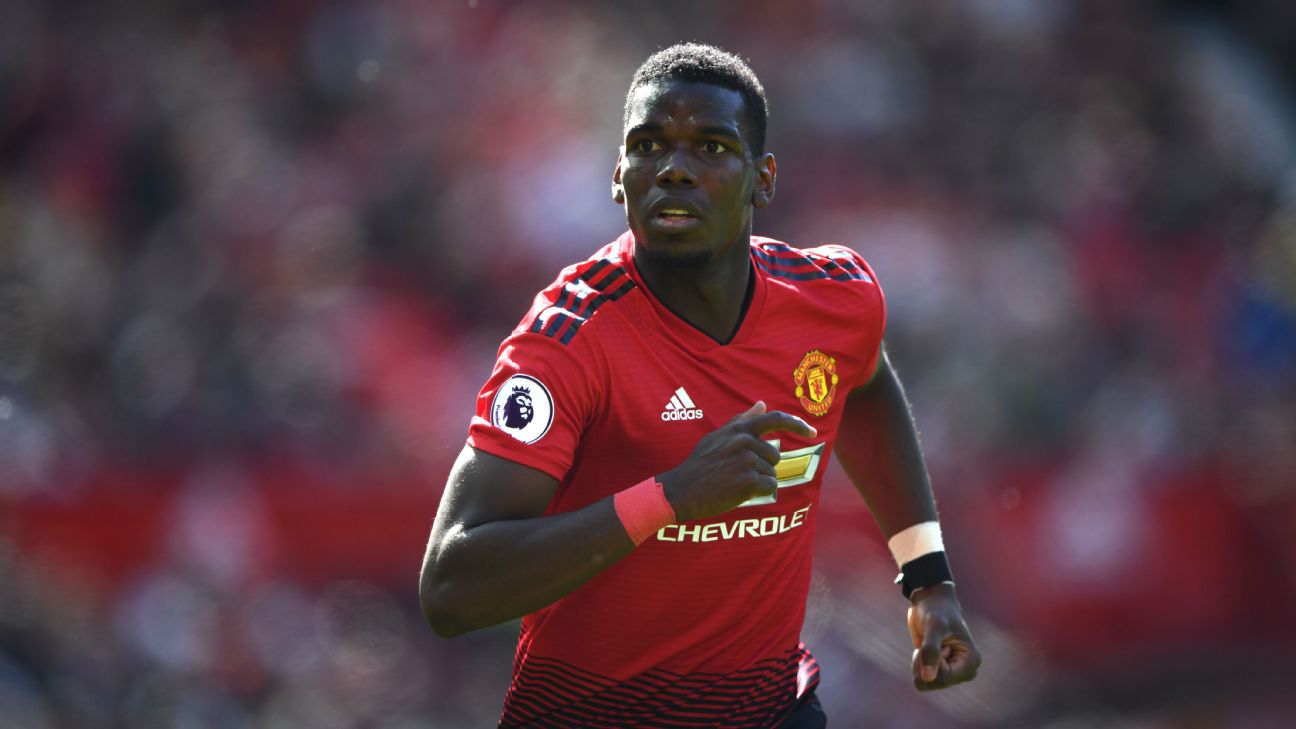
Although his goal-scoring numbers were inflated by seven penalties and although he was benched at the tail end of Jose Mourinho’s tenure, Paul Pogba still managed to be United’s most impactful player in what was essentially a lost season for the club. Per Impect, the 26-year-old bypassed more defenders per game with his passes than any other United player, and the passes he received bypassed more opponents than any United player, too. Oh, and he also scored more goals, registered more assists and completed more dribbles per 90 minutes than anyone else on the team.
Despite managing to be the central figure in both the team’s build-up play and their goal creation, Pogba doesn’t have what you would call a, um, “100-percent approval rating” among the United faithful. If he leaves the club this summer, maybe his detractors will finally come to appreciate him next season… once they see what the team looks like without him.
Bayern Munich: Thiago
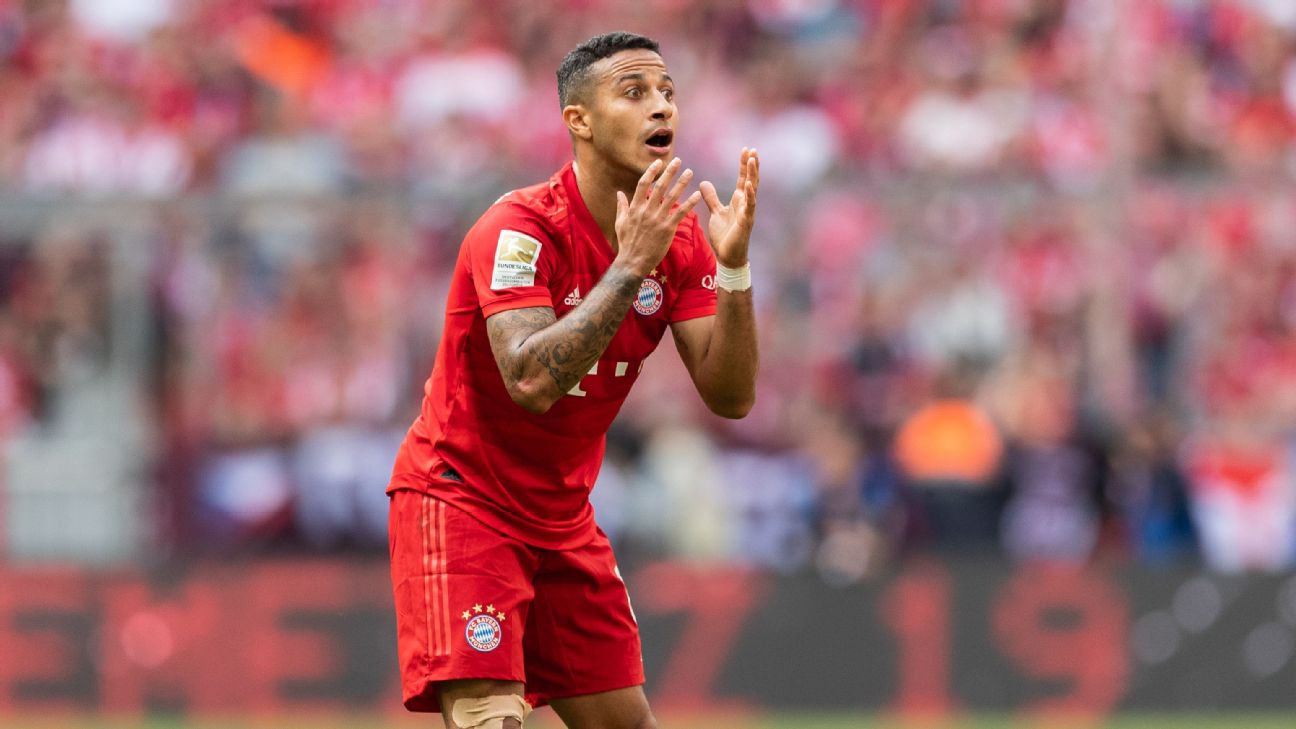
In the simplest of terms, the job of the modern midfielder is to move the ball up to the attackers and prevent the ball from going the other way. No one in the Bundesliga is better at either of those things than Thiago.
The German company Impect, which was founded by former Bundesliga players Stefan Reinartz and Jens Hegeler, collects data for a number of on-field actions and then quantifies how many players those actions remove from the flow of play. In other words: How many opposing players get bypassed with a pass or a dribble and how many get stranded behind the ball after an interception? Thiago leads all midfielders in Germany with an average of 66 opponents removed per game with his passes and 31 removed with his interceptions.
He’s missed four Bundesliga games this season; Bayern drew two and lost both of the others. His presence was the difference between another easy stroll to first and a down-to-the-final-weekend title race.
Real Madrid: Casemiro
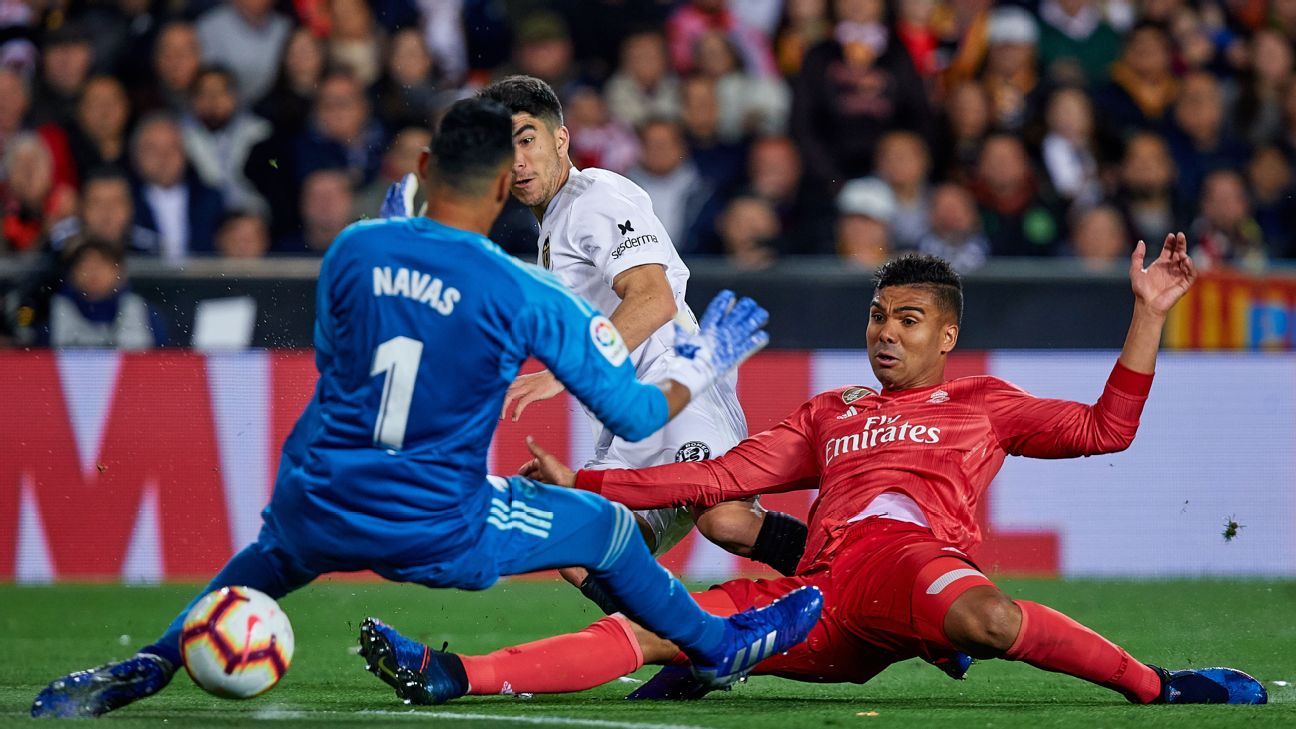
The following statement sums up just how weird Real’s first season post-Cristiano Ronaldo has been: Karim Benzema was probably Madrid’s best player this term, as he led the team in goals and tied for the lead in assists. However, it feels like a stretch to call a 31-year-old striker who scored five goals a year ago “indispensable” so it’s the underheralded 27-year-old Brazilian who gets the designation instead.
As the entire squad declined around him this season, Casemiro was left to put out fires left and right and above: He led the team in combined tackles plus interceptions per 90 minutes and aerial duels won per 90 minutes.
How did Real Madrid win three Champions League titles in a row with a team that barely got any defensive contributions from its three attackers, two-thirds of its midfield and one of its fullbacks? Casemiro did most of the work for them.
Paris Saint-Germain: Kylian Mbappe
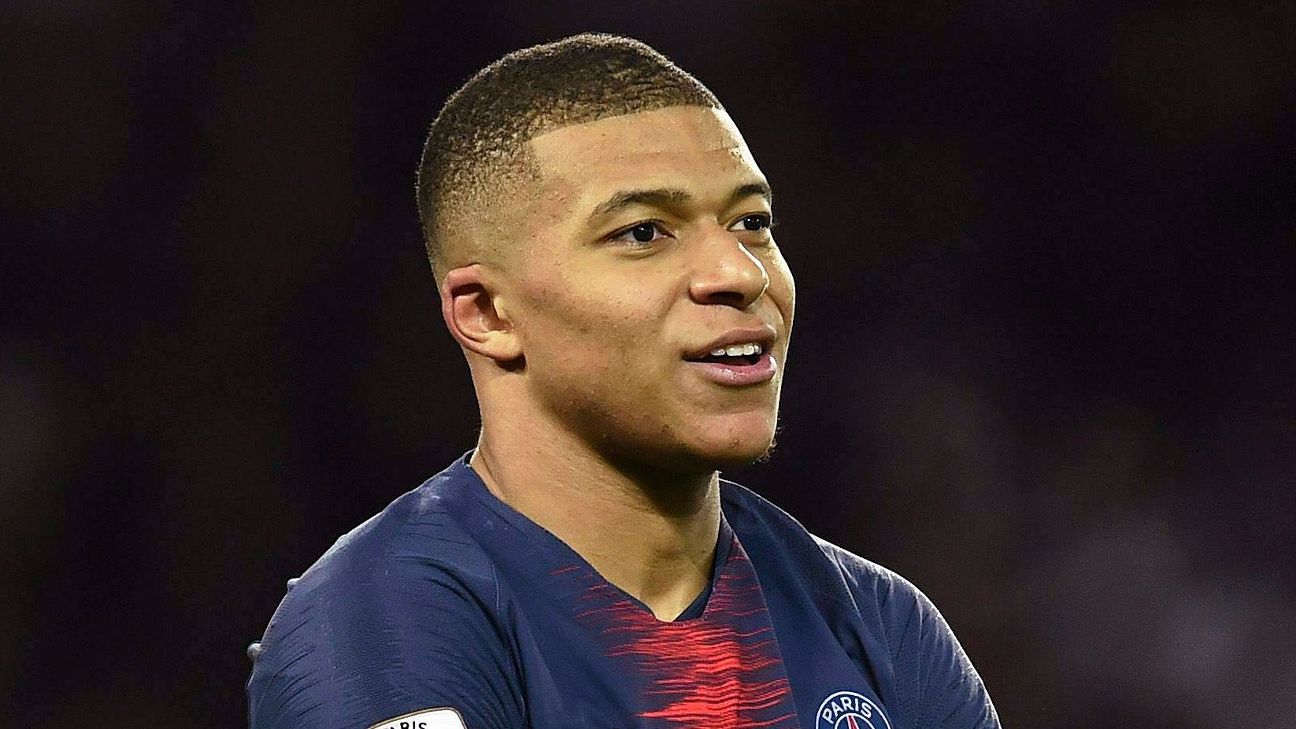
Raw goals and assist totals can play tricks on you because they don’t account for playing time and they don’t discriminate against penalties. Would you rather have the striker with 10 goals (nine on penalties) in 1,500 minutes or the one with eight goals (all from open play) in 800 minutes?
Let’s strip out penalties and take a look at the per-90-minute averages among all players in Europe’s Big Five leagues who have played at least half of the available minutes. Within that subset, only two players averaged at least 1.0 non-penalty goal-plus-assist per 90. There’s the 31-year-old Messi at 1.48, and there’s the 20-year-old Mbappe at 1.50.
One of the faces has changed but the story remains the same: right now, there’s a pair of soccer players who are way better than everyone else on the planet.
Chelsea: Eden Hazard
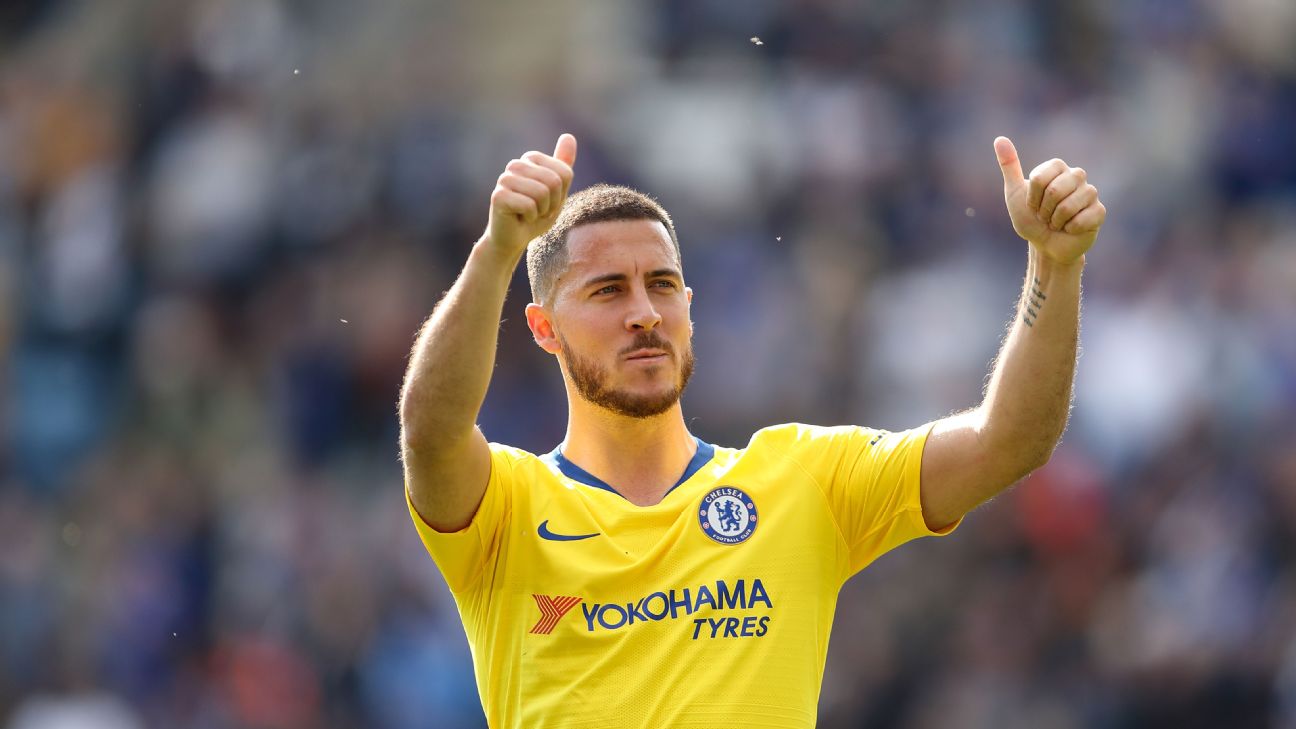
This is awkward. There might not be a single player in Europe who’s more important to his team than Hazard. He reportedly wants to leave… and his team are, pending appeal, banned from signing new players until the summer of 2020. In 2018-19, Hazard basically did the job of four different players at once. He led the team with 16 goals; no-one else had more than eight. He led the team with 15 assists; no-one else had more than six. He completed 138 dribbles; no-one else had more than 45. And he took 240 touches in the opposition penalty area; no-one else had more than 113.
It’s not just that Hazard was the team’s leading scorer, creator, ball-mover and target man. No, it’s that he was at least 100-percent more productive in all of those areas than any of his teammates. If Hazard skips town, Chelsea will likely need to sign multiple players to replace all of that. Unfortunately, they might not even be able to sign one.
Atletico Madrid: Jan Oblak
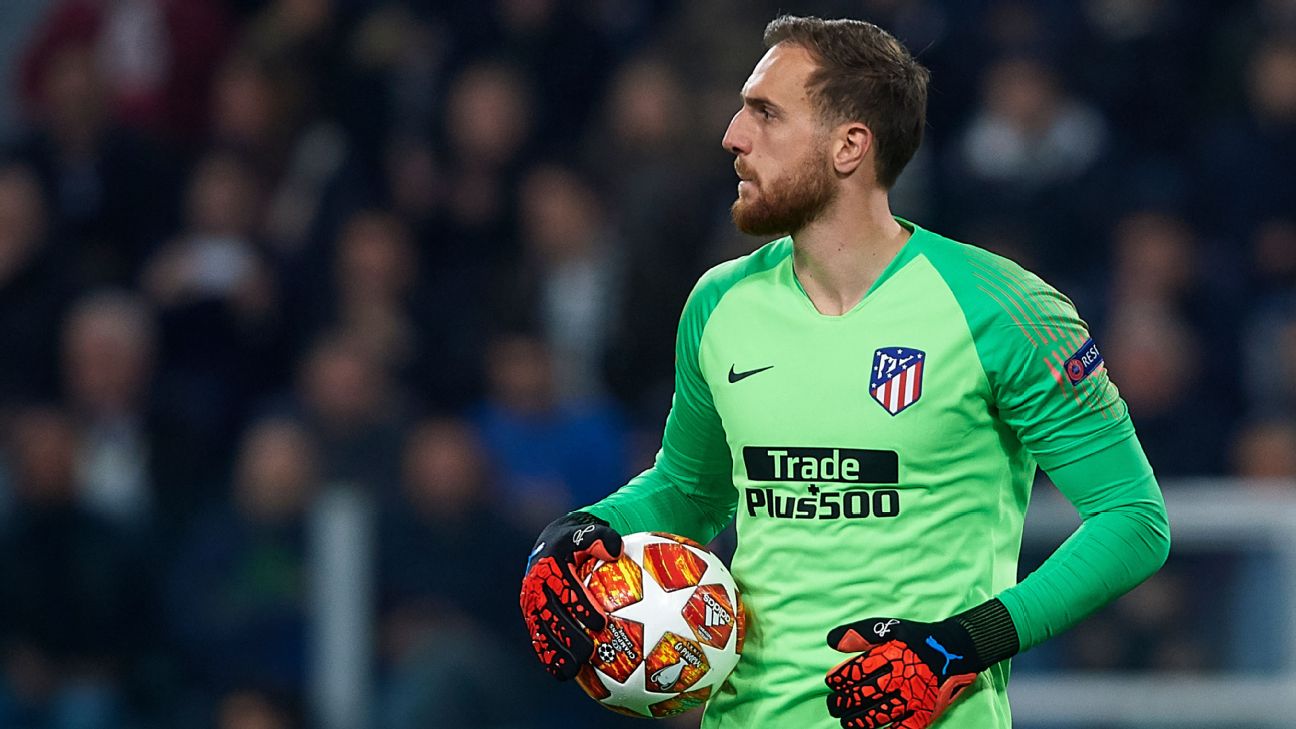
Atletico are the one elite modern team that have built their success around a ferocious, rock-solid defense and not controlling the ball. Among the Big Five European leagues, there are 50 teams who average more possession than Diego Simeone’s side. A byproduct of that is that Atletico also concede a relatively high number of shots per game — 11.2, 21st-fewest in Europe — for a team with annual designs on making a deep run in the Champions League.
Despite all those attempts, though, Atletico have still allowed fewer goals per game this year than all but Manchester City and Liverpool. Why? They have the best goalkeeper in the world. According to research from the data company STATS, the 26-year-old Jan Oblak has saved a European-best 0.67 goals above average per game(!) this season. Without an elite shot-stopper, Simeone’s style wouldn’t be so successful. Fortunately, he might have the best one there is.
Juventus: Joao Cancelo
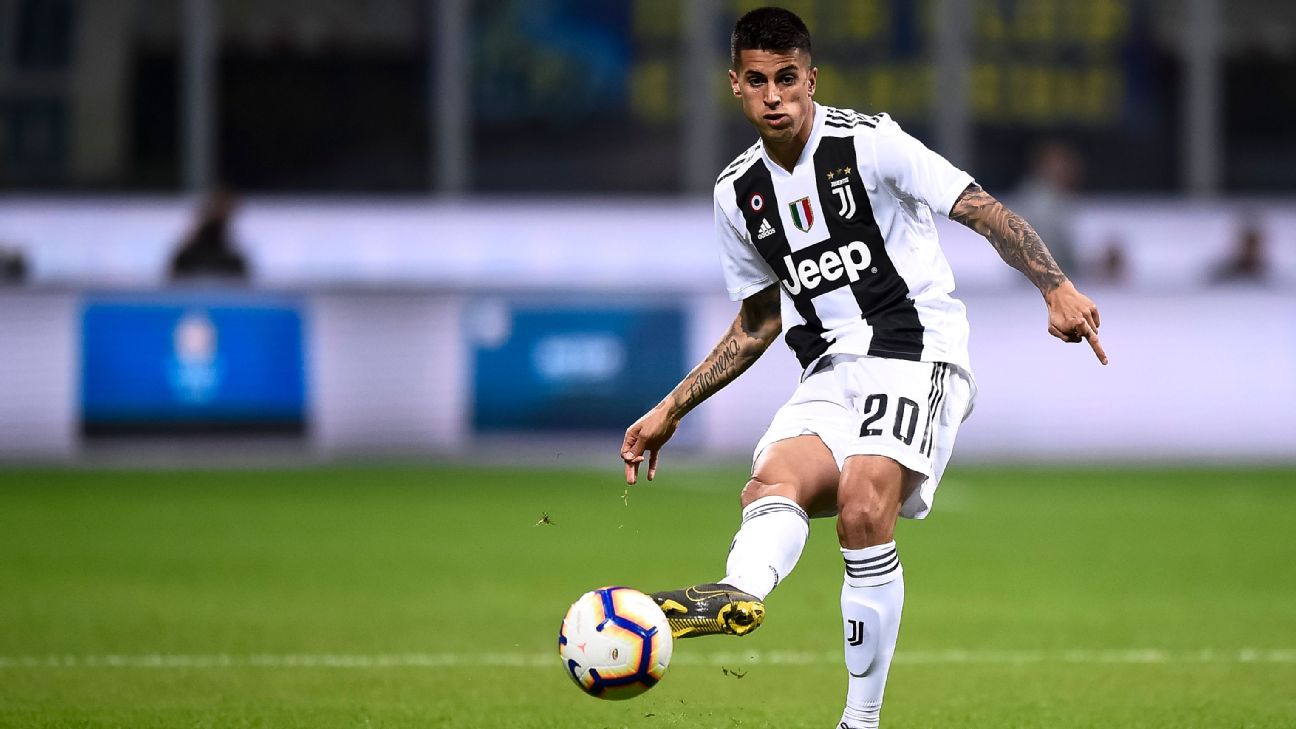
It’s not Cristiano Ronaldo. Seriously. With Gonzalo Higuain leading the line last year, Juventus made the Champions League quarterfinals and averaged 2.5 points per game in Serie A. With Ronaldo in his place this season, Juventus made the Champions League quarterfinals and are averaging 2.47 points per game in Serie A. Ronaldo’s per-90, non-penalty goals-plus-assist numbers are still very good (0.83), but he’s 34 and a team with Juve’s resources can find “very good” striker-production elsewhere.
Instead: yes, we’re going with Joao Cancelo. Juventus really struggled to get in behind opposing defenses — a downside of starting two strikers well into their 30s — and the team as a whole has somehow completed just 13 through-balls all season. (For reference, Chelsea’s Jorginho completed 13 by himself. Messi led all players with 40.) Cancelo led the team in take-ons completed per 90, and according to the site Football Whispers, he was the only Juventus player to complete more than one cut-back pass in the box all season.
The game just didn’t seem as hard for Juve with Cancelo in the lineup; call him their “No-Stats All-Star.” In Serie A matches he started at full-back, the team won 14 games and drew four. And in the disappointing second-leg loss against Ajax? He started on the bench.
Tottenham: Christian Eriksen
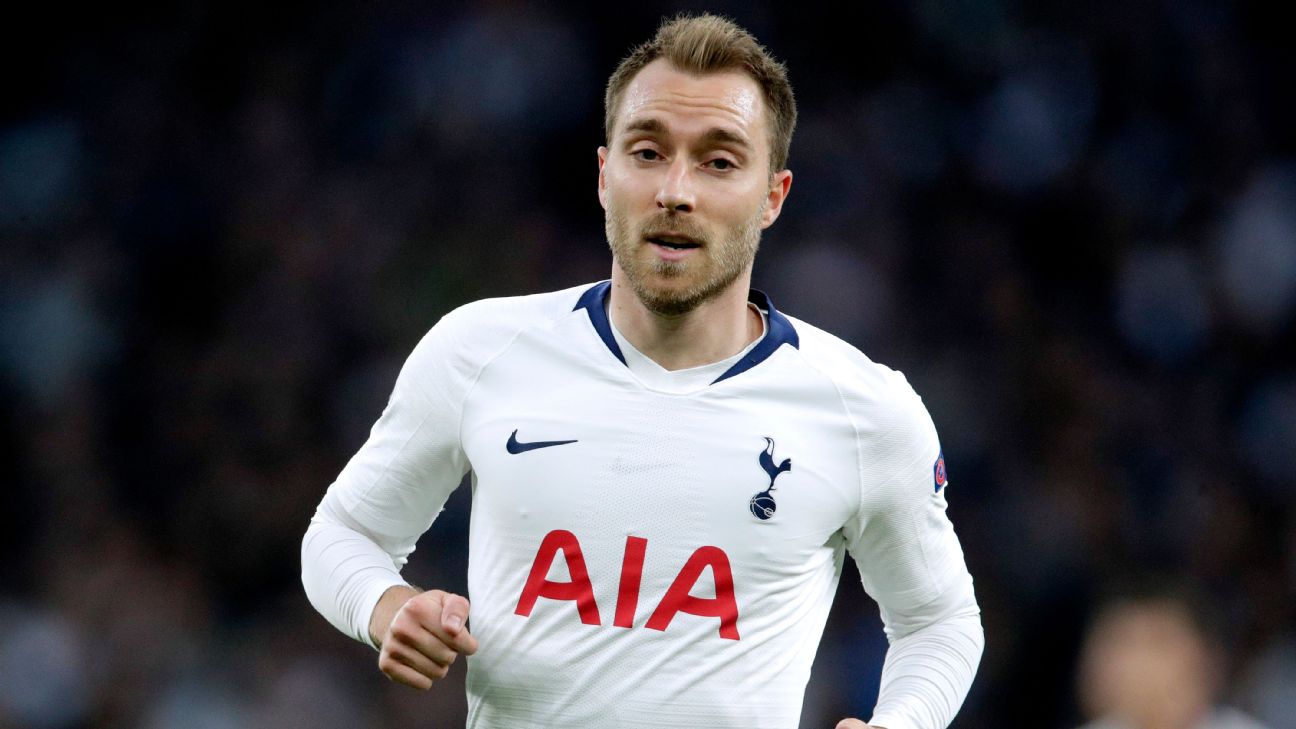
In Tottenham’s dualist season from heaven/hell that saw them suffer a countless string of injuries to key players, win just 10 points from their final nine Premier League matches and still manage to finish top four while also reaching the Champions League finals, there have been two constants: Christian Eriksen and Toby Alderweireld, the only outfield players to reach at least 2,500 minutes of domestic gametime. However, we’ve already seen Spurs tick along without Alderweireld, as he featured in just 14 games last season. Not so with Eriksen, who’s played in 179 of the 190 Premier League games for the club since Mauricio Pochettino became manager.
The 27-year-old Dane led Spurs in chances created and assists this year, and his ability to function at the tip or the base of a midfield gave Pochettino some much needed tactical flexibility despite an increasingly limited number of players to start around him.
Arsenal: Aaron Ramsey
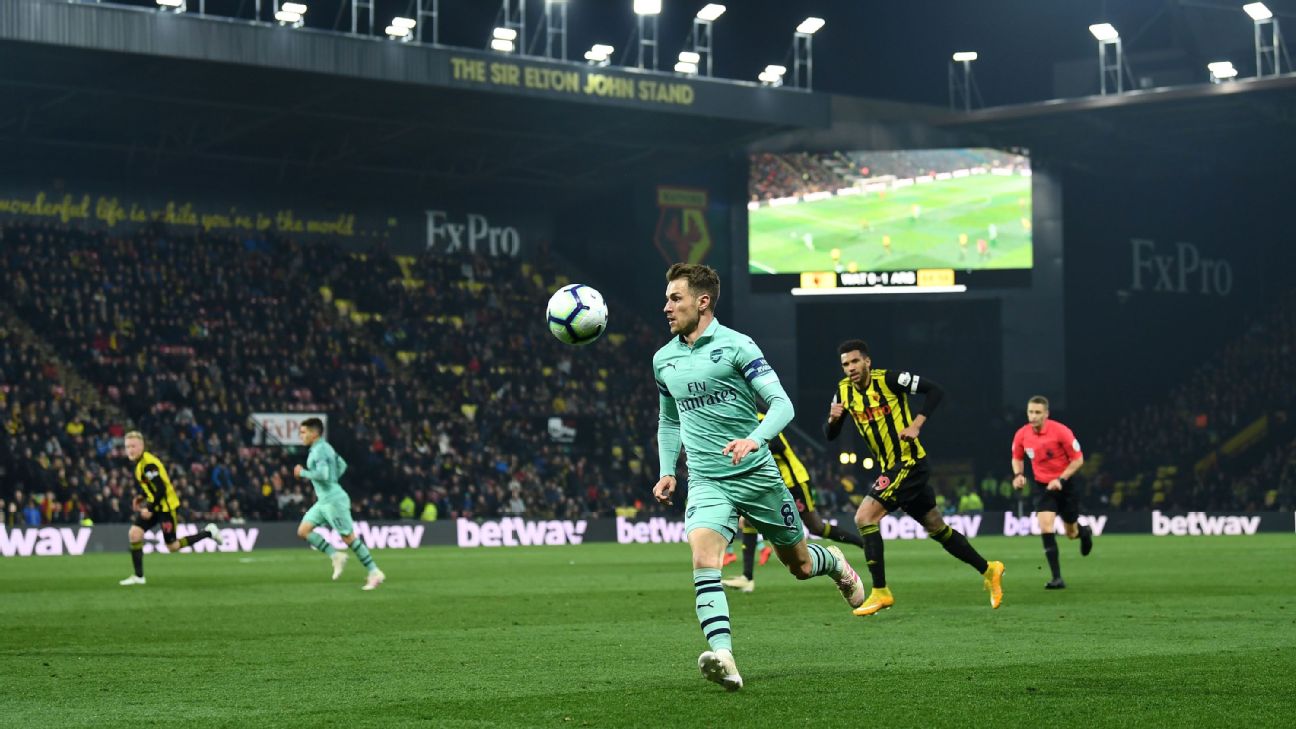
In October of last year, a group of researchers at Carnegie Mellon University published a paper in which they devised a method for determining basketball-like plus-minus ratings for Premier League players. The issue with devising a similar statistic for soccer is that there aren’t many subs, so groups of players will spend the majority of their time on the field together, making it hard to divvy up credit for a team’s performance. The authors of the paper devised a workaround: using ratings from the video game FIFA to roughly determine how much each player contributed.
Two of the researchers, Lee Richardson and Francesca Matano, ran the numbers for the 2018-19 season for me and the Arsenal player who had the largest positive effect on the team’s performance was Aaron Ramsey. That was true whether or not they made the FIFA adjustment, too. Although he’s a midfielder and only made 14 starts this year, Ramsey produced a better non-penalty-goals-plus-assists rate this season than Sadio Mane, who won a share of the Premier League Golden Boot.
Put another way: Ramsey is the exact kind of player you wouldn’t want to lose to Juventus on a free transfer. Oh, right.
